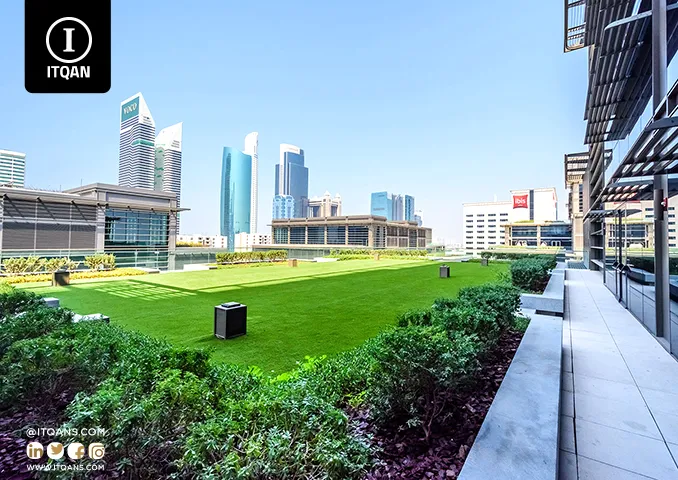Is Dubai the Right Place for Your Small Business?
Business setup UAE is a popular topic among entrepreneurs exploring international markets, and Dubai remains one of the top destinations. With its strategic location, tax-friendly policies, and growing economy, Dubai is an attractive hub. However, before you decide to start a company in the UAE, it’s essential to weigh the pros and cons carefully.
Why Consider Business Setup in UAE?
The UAE has consistently ranked as a top destination for startups and international entrepreneurs. Particularly, business setup in Dubai offers a range of benefits:
- Strategic Global Location: Connecting the East and West, Dubai offers seamless access to global markets.
- Tax Incentives: No personal income tax and minimal business tax obligations attract investors worldwide.
- World-Class Infrastructure: Modern ports, reliable internet, and top-tier business centers.
- Diverse Economy: Dubai supports industries from fintech and logistics to tourism and real estate.
However, making a decision on whether to launch a business in UAE doesn’t stop at the advantages. Understanding the challenges involved is equally important.
Pros of Starting a Business in Dubai
1. Favorable Tax Environment
One of the biggest draws for business setup UAE is the favorable tax regime. Until recently, businesses enjoyed 0% corporate tax. Now, UAE has introduced a 9% federal corporate tax, but it still remains lower than global averages.
2. Business-Friendly Policies
Dubai’s government has developed streamlined procedures to start a company in UAE. You can get licensed within days, especially in free zones designed for startups and foreign ownership.
3. 100% Foreign Ownership
Recent reforms now allow full foreign ownership for many business activities. This gives entrepreneurs more control and security when setting up a company in mainland Dubai.
4. Access to Free Zones
Dubai features over 30 specialized free zones like Dubai Multi Commodities Centre (DMCC) and Dubai Internet City. These zones offer perks such as full repatriation of profits, 0% import/export tax, and simplified customs procedures.
5. Infrastructure and Logistics
Dubai is a logistical powerhouse. With two top-tier international airports and one of the busiest ports, it’s ideal for trading businesses. Add to this the city’s advanced highways, public transportation, and IT infrastructure.
6. Skilled Workforce
You’ll find abundant skilled professionals in Dubai. The city hosts a multinational workforce fluent in major global languages, helping business owners navigate expansion and communication effortlessly.
7. High Quality of Life
The UAE offers an excellent quality of life, which helps attract global talent. From healthcare to entertainment, Dubai provides a comfortable lifestyle for entrepreneurs and their families.
Cons of Business Setup in Dubai
1. High Cost of Living and Operations
Running a small business in Dubai can be expensive. Rent, employee salaries, and daily operations come at a premium, especially in prime locations. You’ll need to carefully manage overheads to stay profitable.
2. Industry-Specific Regulations
Depending on your sector, regulations can be strict and complex. Professional and financial services often require approvals from specific government bodies, which might delay the business setup UAE process.
3. Intense Competition
Dubai is a magnet for global entrepreneurs. As a result, almost every industry faces tough competition. You need a strong value proposition and marketing strategy to stand out.
4. Banking Challenges
Opening a corporate bank account can be time-consuming. UAE banks require detailed documentation and background checks. Onboarding might take several weeks to complete, impacting your go-to-market timeline.
5. Cultural and Regulatory Differences
Understanding the UAE’s legal framework and business etiquette is essential. Although Dubai is cosmopolitan, local business culture still emphasizes respect for customs, hierarchy, and local sponsorship in certain sectors.
Urban vs Free Zone: What’s Best for Your Business?
Should you choose a free zone or a mainland location? Each option affects your operating model and cost structure.
- Mainland: Ideal if you plan to do business directly with the UAE market without restrictions.
- Free Zone: Best for export-focused companies or those seeking industry-specialized environments.
Research your business activity and long-term goals to choose the best location. For detailed insights, visit our Best Free Zones in UAE for Business Setup.
How to Proceed with a Business Setup in UAE
Follow these steps to launch a business in the UAE:
- Define Business Activity: Choose from over 2,000 activities listed by the Department of Economic Development (DED).
- Choose Jurisdiction: Decide between Mainland, Free Zone, or Offshore setups.
- Register Trade Name: Ensure it aligns with UAE naming conventions.
- Secure Initial Approvals: Obtain preliminary permissions from relevant authorities.
- Lease Office Space: Submit tenancy contracts for final licensing.
- Apply for Licenses: Based on your activity—commercial, industrial, or professional.
To learn more about the legal framework and regulations, visit the official UAE Government Portal.
Final Thoughts: Is Dubai Right for You?
If your business model aligns with international commerce, high-end services, or tech innovation, Dubai can be the perfect launchpad. However, weigh both the opportunities and obligations carefully. Budgeting, licensing, and compliance are essential steps to plan before making a move.
The business setup UAE scene offers ample growth prospects, especially for entrepreneurs who do thorough market research and align their strategy with the region’s strengths.
Whether you’re eyeing the bustling Dubai mainland or a niche free zone, take the time to evaluate every aspect. Done right, your venture could thrive in one of the world’s most dynamic marketplaces.








